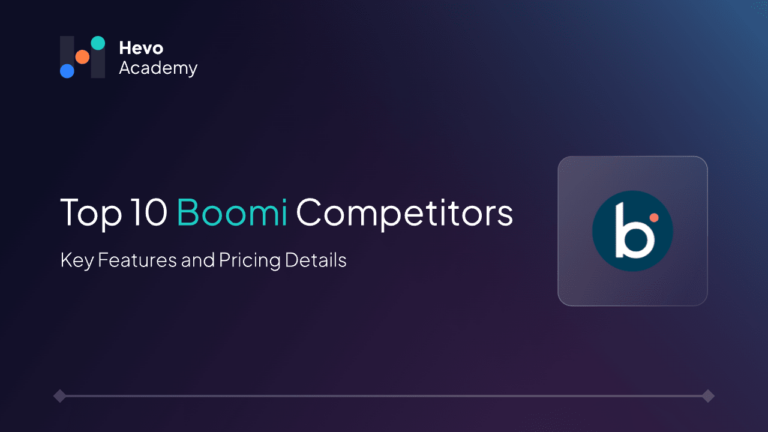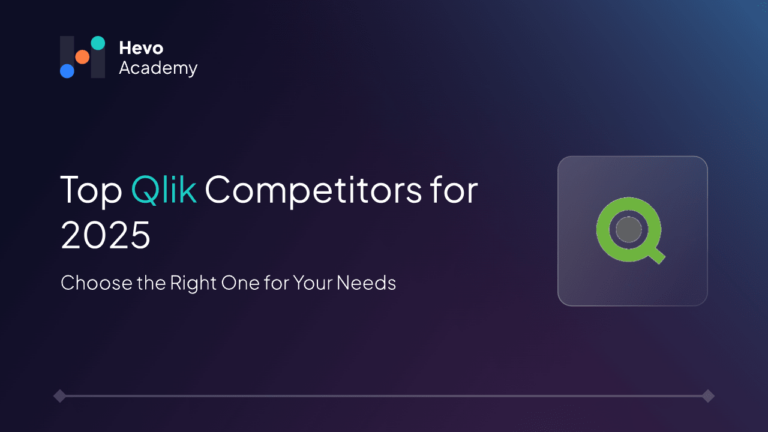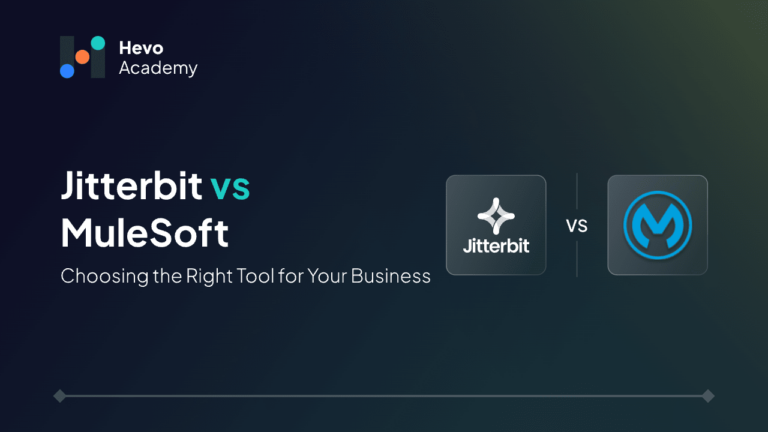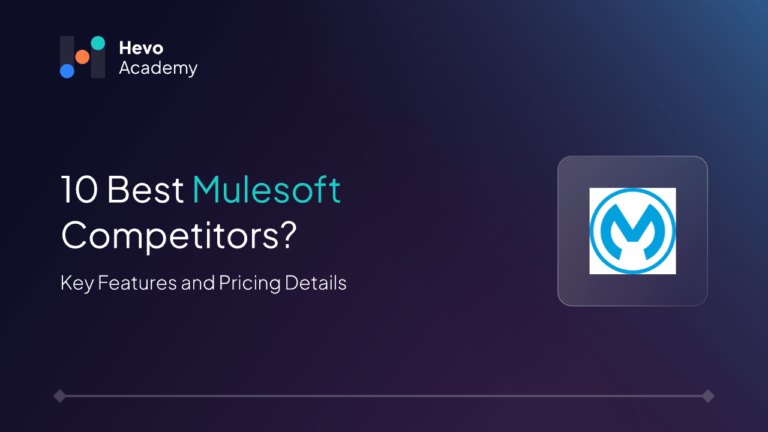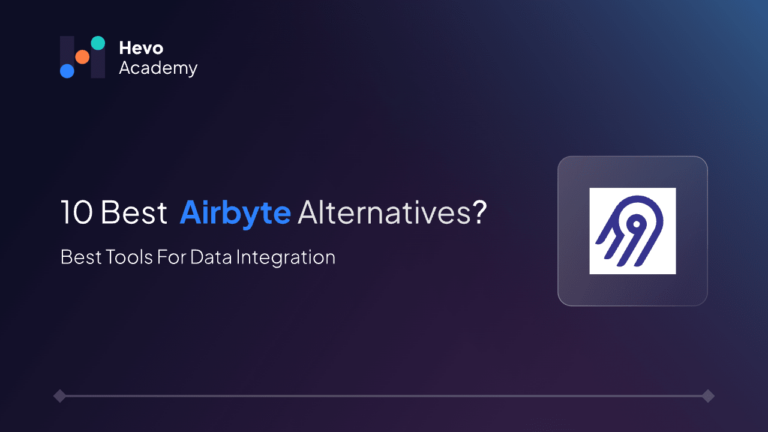Boomi is a Dell Technologies business, that connects everything in your digital ecosystems. Its intelligent, flexible, scalable platform stimulates business outcomes by linking data, systems, and people. Boomi comprises 2148 employees with 7% employee growth yearly. Boomi generates $436M of revenue. In this blog, you can explore Boomi and its competitors and how its competitors can be utilized as its alternatives by discussing strong points, limitations, and pricing of other platforms.
Table of Contents
What Is Boomi?
Boomi is an integration platform (iPaaS) service that helps businesses integrate applications, data, and systems. Boomi is a cloud-based software platform that connects applications, databases, and APIs. Boomi can discover and synchronize data across various applications and systems within an organization. Boomi use cases are in the manufacturing, healthcare, life sciences, retail industries, etc.
Why Look for Boomi Competitors?
- One limitation of the deployment perspective is that Boomi does not have an automated process for applying new versions. This requires a lot of effort from the dev and testing teams.
- UKG Connector 2 sometimes exhibits performance issues due to not getting properly integrated into the system, affecting the overall efficiency and reliability of the system.
- Boomi’s filtering function can be ineffective at times, making it difficult for users to sort through large volumes of data or content efficiently.
- The slow response from Boomi’s technical support team may extend the disruption in operations.
Top 10 Boomi Competitors and Alternatives
1. Hevo Data
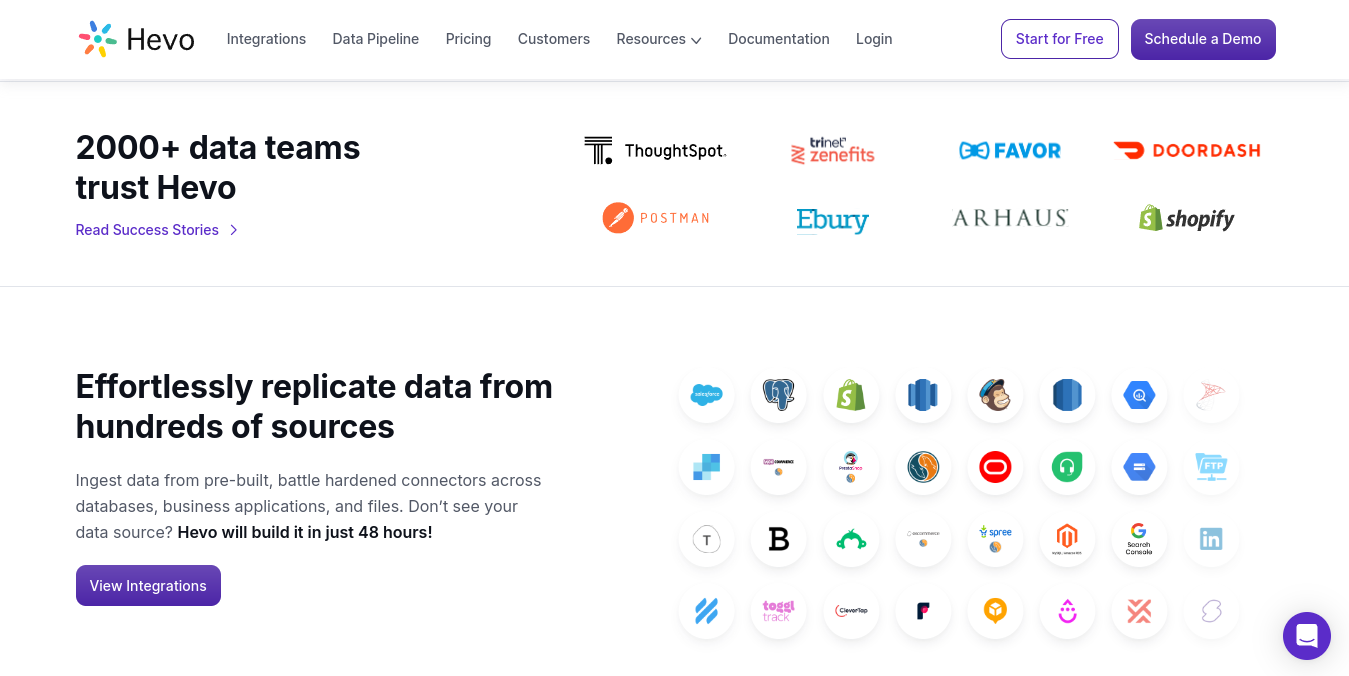
Hevo Data is a no-code data pipeline platform designed for seamless data integration across multiple sources. It automates data ingestion and loading into cloud warehouses, ensuring real-time data availability.
- Best for: It’s ideal for companies looking for an intuitive, fully-managed data pipeline solution that minimizes engineering effort and ensures real-time data synchronization.
- Prices: Starting at $299 per month with a free trial available.
2. MuleSoft
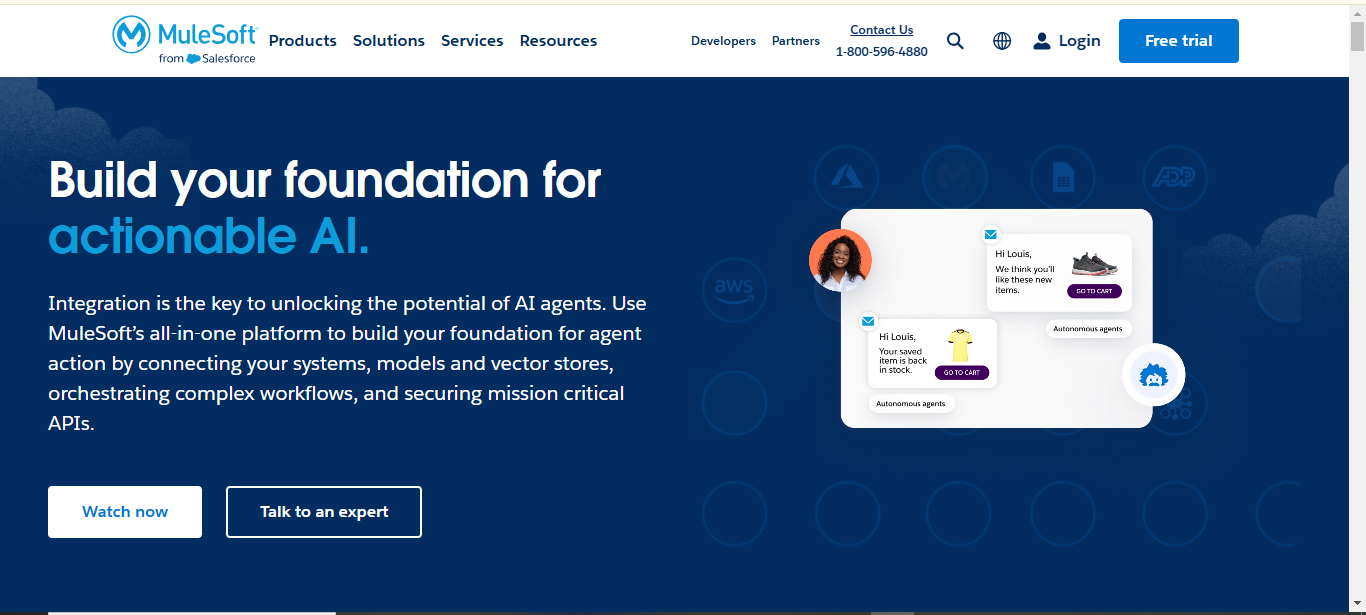
MuleSoft is a platform led by Salesforce, enabling enterprises to connect applications, data, and devices across local and cloud environments. They provide pre-built connectors with advanced security and API management.
- Best for: It’s good for large organizations that require robust API management and hybrid integration capabilities in their IT ecosystems.
- Limitations: Assembling requires a lot of effort, and the implementation costs make it difficult for small businesses and teams with limited resources and expertise.
- Prices: It is based on custom pricing decided according to enterprise needs
You can take a look at the top 10 Mulesoft competitors and alternatives in 2025.
3. Workato
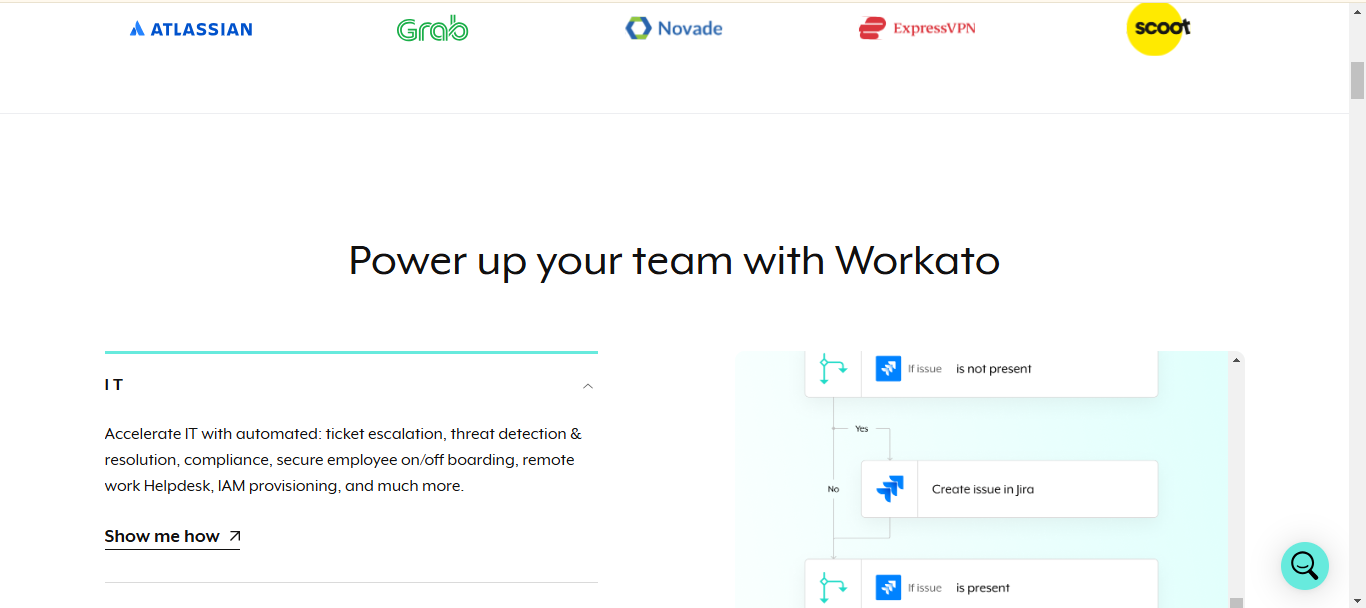
Workato is an integration and automation platform that connects SaaS applications with AI-driven workflows. Its low-code interface helps IT teams and businesses achieve scalable integration. The platform comprises more than 400,000 integration recipes.
- Best for: Organizers who are looking for an AI-driven automation solution that requires integration of AI with third-party integrations
- Limitation: It can struggle with highly complex business logic that requires intricate branching or deep custom coding.
- Pricing: Pricing is not transparently discussed on their platform
4. SAP Integration Suite
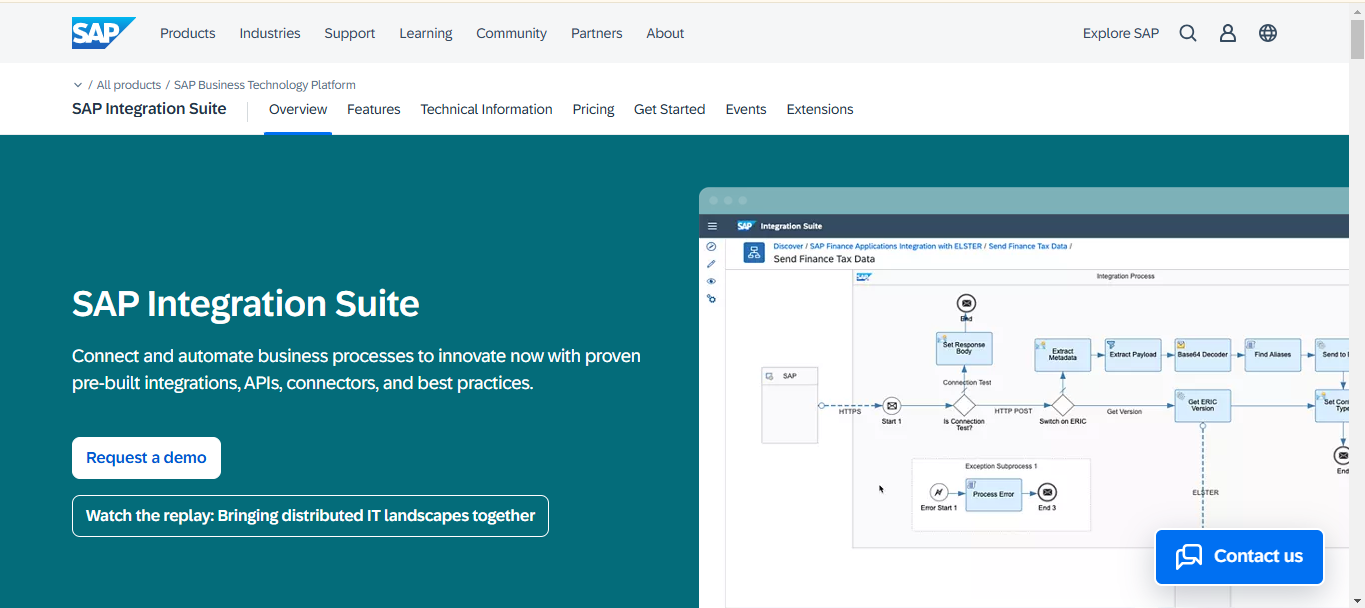
SAP Integration Suite is a platform for companies leveraging SAP and non-SAP systems. It provides API management, B2B integration, and even event-driven architecture to unify different systems and simplify processes, maximizing the value of enterprise data.
- Best for: It enables organizations to connect applications, ensuring real-time data flow and operational efficiency, accompanied by robust API management and graph capabilities.
- Limitation: As it is primarily optimized for the SAP environments, making it less flexible for the organization using another technology and utilizing diverse software ecosystems.
- Pricing: Custom pricing based on features and usage by the organizations utilizing it.
5. Talend
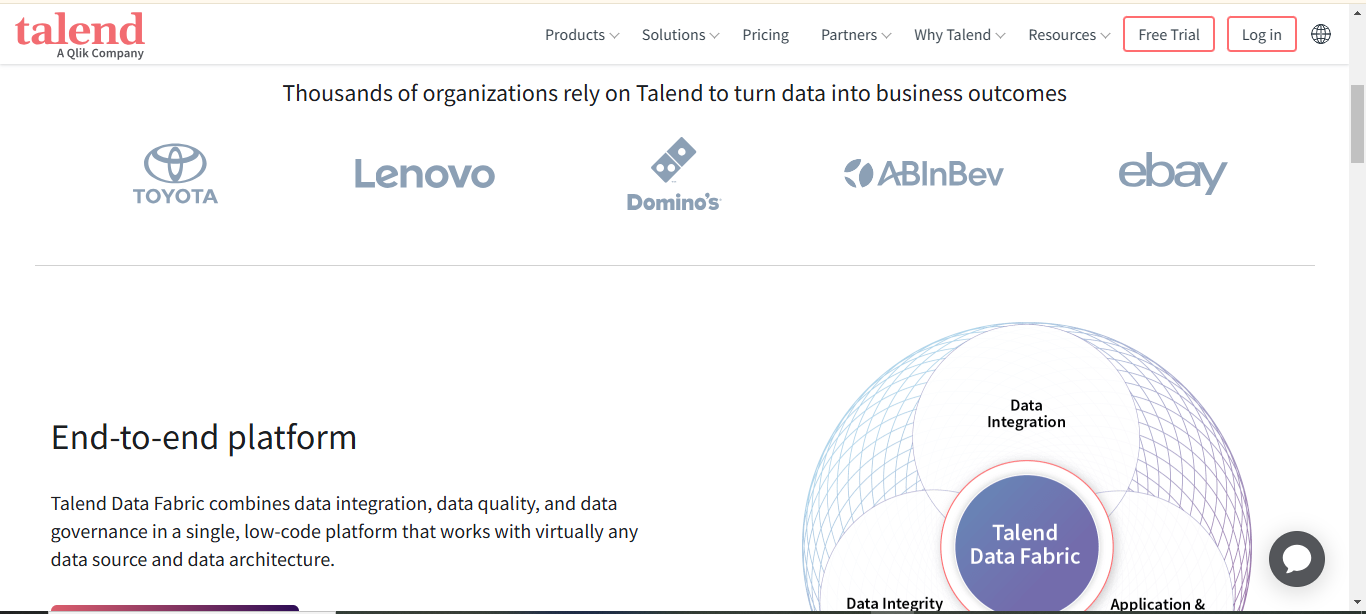
Talend is a solid tool for managing and integrating data, especially when dealing with ETL (Extract, Transform, Load) processes, APIs, and data quality. It helps businesses pull data from different sources, clean it up, and make it usable across various systems.
- Best for: Organizations that need robust ETL and data governance solutions, especially for big data and cloud environments.
- Limitation: The system requires knowledgeable technicians for difficult data transformations, which could slow processing times during big data operations.
- Pricing: The company provides both open-source and enterprise versions with price customization that considers business needs.
6. Jitterbit
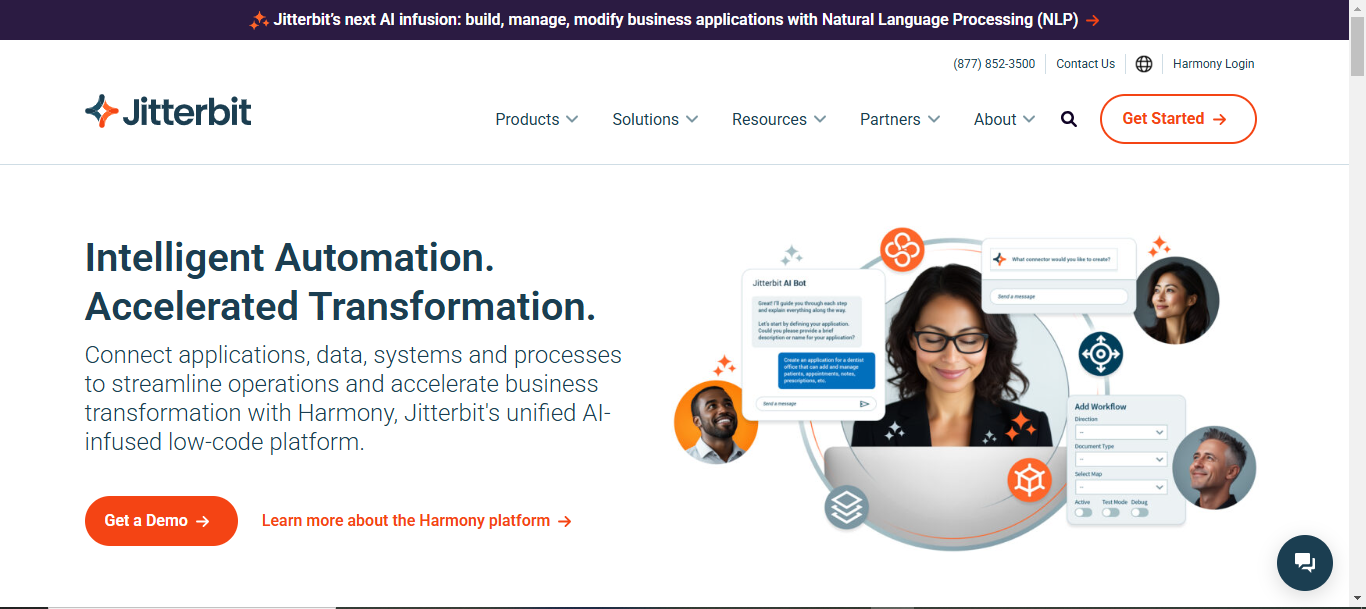
The integration platform Jitterbit provides users with API management capabilities, data integration, and artificial intelligence. Through its functionality, organizations can efficiently connect SaaS and cloud applications with on-premise applications.
- Best for: Companies that require extensive API management together with automation features and teamwork functionality should choose Postman.
- Limitation: This platform’s main weakness is its limited ability to integrate with corporate applications, as it focuses mainly on testing and developing APIs.
- Pricing: The pricing model includes free access and costs $14 per user for a month for professional version features that enhance organization and automation.
You can also explore the key differences between Jitterbit vs Mulesoft to help you choose the right tool for your business.
7. Postman
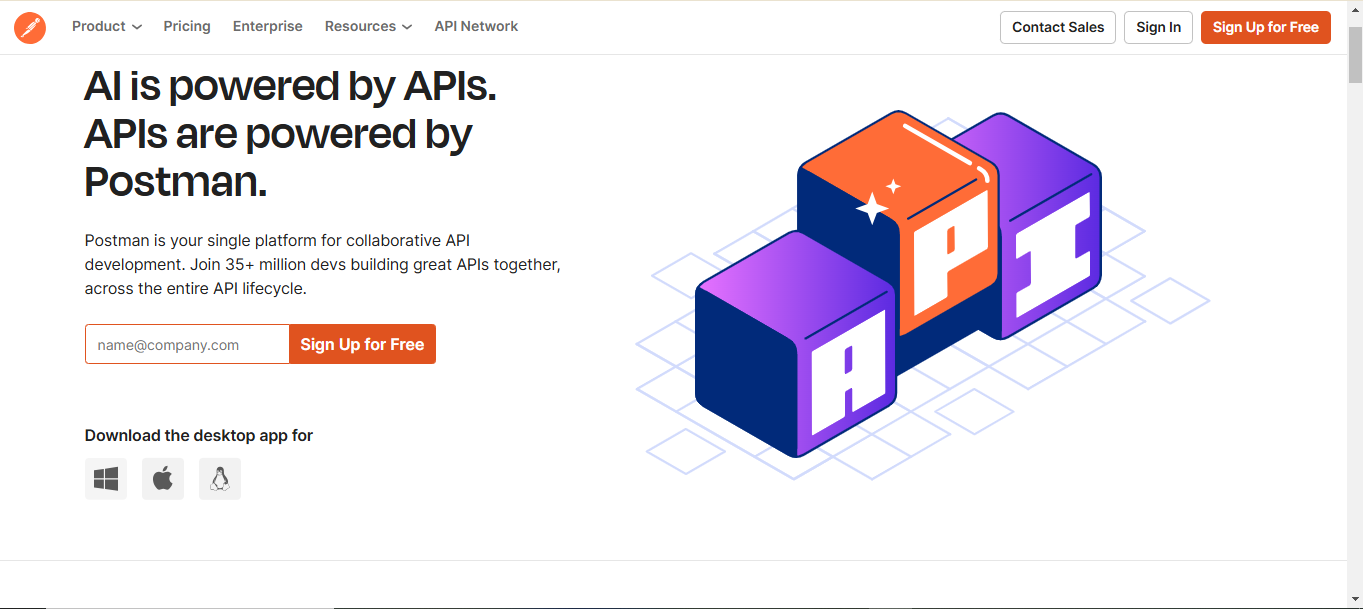
Postman is an API development platform that helps teams optimize their API design work and testing activities while documenting and monitoring APIs. The platform suits developers and organizations requiring an extensive API and collaborative features.
- Best for: Companies that require extensive API management together with automation features and teamwork functionality should choose Postman.
- Limitation: Primarily focused on API development and testing, lacking deep integration capabilities with enterprise software.
- Pricing: Offers a free tier, with paid plans starting at $12 a month.
8. SnapLogic
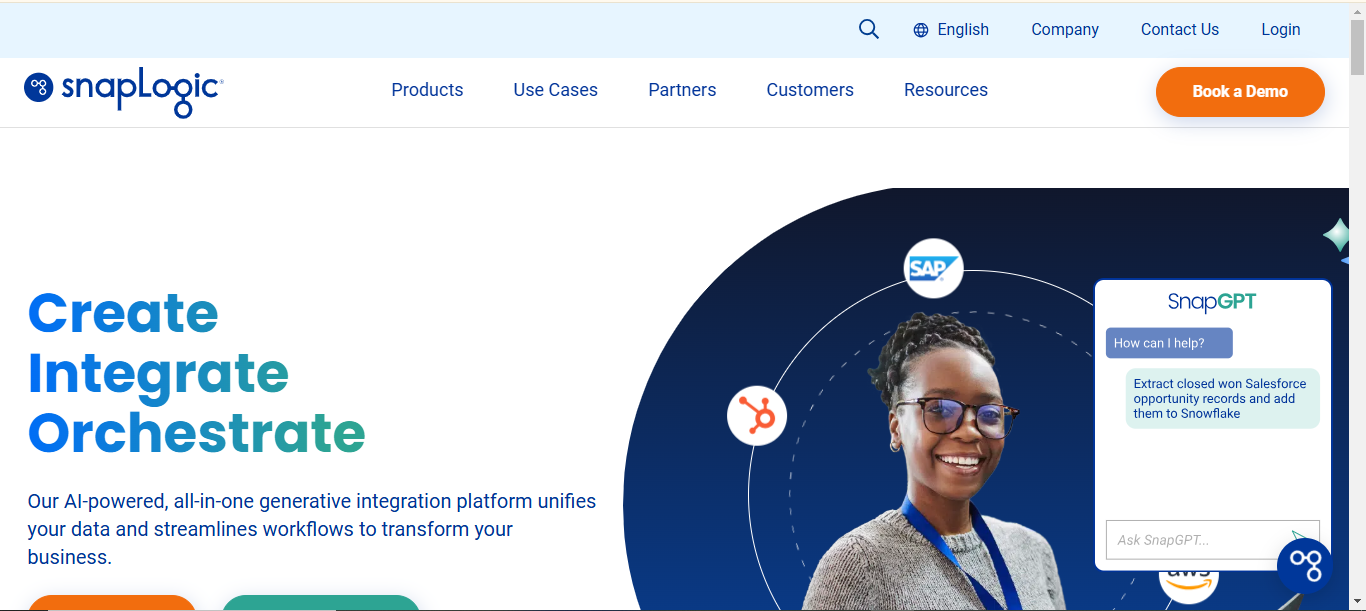
SnapLogic enables users with low-code and no-code options to unite on-premise applications with cloud-based solutions, data sources, and APIs.
- Best for: Small businesses requiring both AI-assisted automation and visual data and application integration software should choose this solution.
- Limitation: Hitting the market requires skills training for novices, while the advanced features in its pricing structure may lead small businesses to incur high costs.
- Pricing: The pricing strategy features a subscription system
9. Celigo
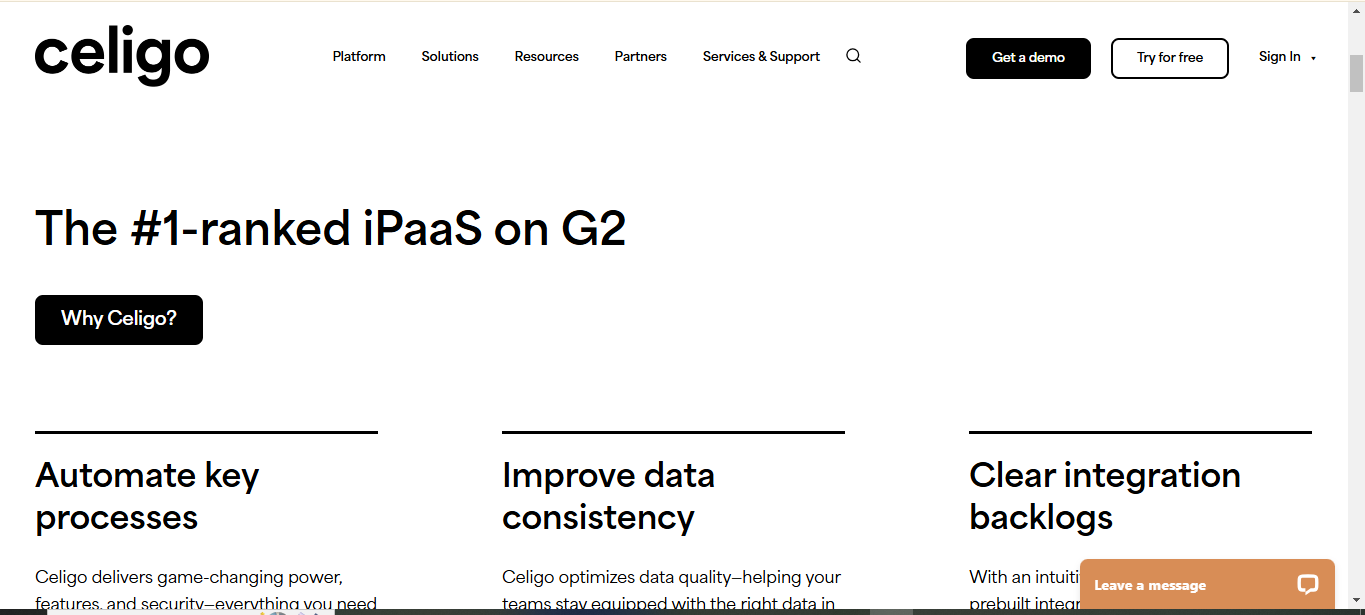
Celigo is a platform that helps automate data flow between systems, including on-premises applications and cloud platforms. This platform is a data flow connection method that automates business processes while improving system-wide data accessibility.
- Best for: The prebuilt connector, integration, and app collection of Celigo enables fast deployment of automated solutions and integration.
- Limitation: The platform shows limitations for businesses that use complex on-premise infrastructure because of its cloud-design focus.
- Pricing: Celigo presents flexible pricing plans.
10. Informatica
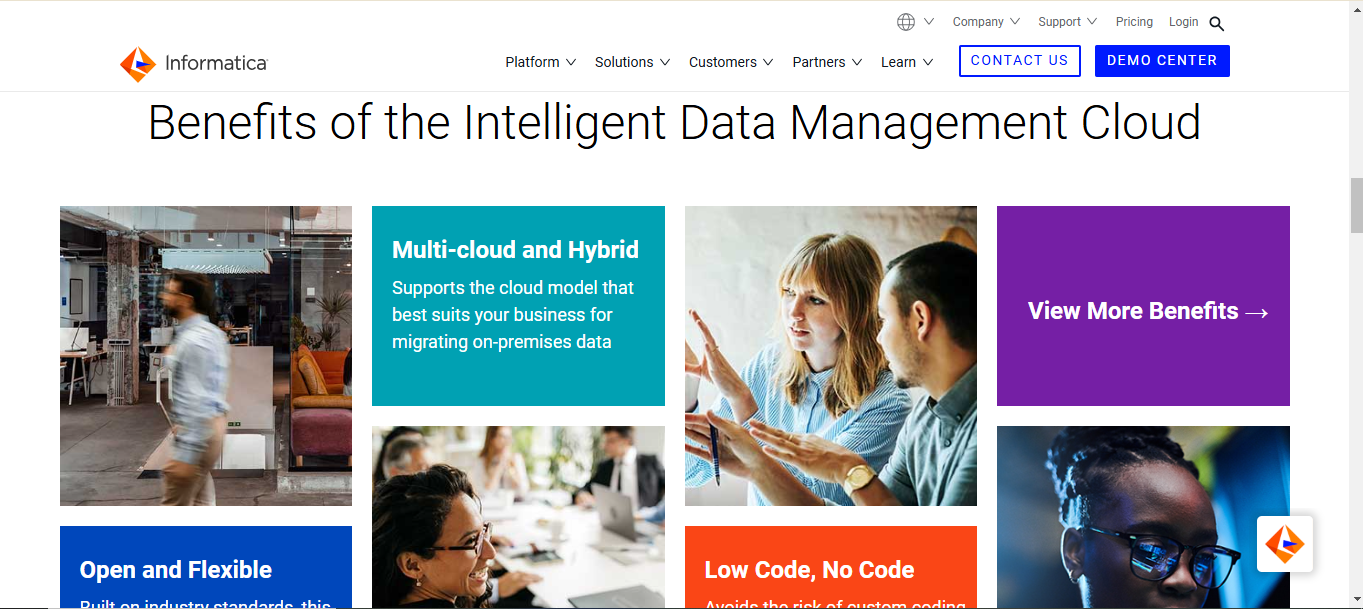
The Informatica platform provides diverse solutions for managing data through integration platforms that also ensure data quality, governance and security. This solution delivers excellent data integration features for big enterprises through its capabilities in processing large data quantities and analyzing information while managing cloud environments.
- Best for: Their software suits large companies that need to integrate data with high performance while working with complicated IT systems
- Limitation: Implementing the system requires high prices for small-scale businesses.
- Pricing: It uses subscription plans and tailored solutions according to enterprise need
Top Boomi Alternatives Compared in One Place
| Tool | Best For | Limitation | Pricing |
| Hevo Data | No-code, real-time pipelines | — | From $299/month, free trial |
| MuleSoft | Large enterprises, hybrid IT | Complex, costly for small biz | Custom pricing |
| Workato | AI automation, SaaS integration | Pricing unclear | Not disclosed |
| SAP Integration Suite | SAP & non-SAP unification | Best for SAP, less flexible | Custom pricing |
| Talend | ETL, big data, governance | Needs expertise, can be slow | Open-source & enterprise |
| Jitterbit | API, SaaS, cloud integration | Limited corporate apps | Free, $14/user/month |
| Postman | API dev, testing, collaboration | Limited enterprise integration | Free, paid from $12/month |
| SnapLogic | AI automation, visual integration | Needs training, costly features | Subscription, custom quotes |
| Celigo | Cloud, Salesforce integration | Weak for complex on-prem | Flexible, based on use |
| Informatica | Big enterprises, data integration | Expensive for small businesses | Subscription, custom |
How to Choose the Right Boomi Alternative?
To choose the right alternative for Boomi, keep in mind these factors and usage:
- Choose a platform based on your requirements and compatibility with your existing systems.
- If your team lacks technical expertise, opt for low-code/no-code platforms like Hevo, SnapLogic or Workato.
- Fixed pricing options suit budget-conscious businesses, while there are custom pricing options.
- Consider platforms with strong customer support and a large user community.
Conclusion
Boomi enables businesses to unite cloud and conventional applications alongside workflow optimization and data handling functions through its cloud-friendly capabilities. Your decision for a Boomi replacement depends on the combination of business requirements, technical skills, budgetary capacity, and scale growth needs.
Evaluating price structures alongside support models along with compatibility requirements against your business needs will lead you to select the best Boomi alternative. Your goal alignment with a chosen platform ensures smooth data connectivity, increased operational efficiency, and future growth potential.
For businesses seeking a seamless and scalable solution, Hevo offers powerful data integration with unbeatable pricing and an easy-to-use platform. Sign up for a 14-day free trial today to experience how Hevo can elevate your data connectivity and operational efficiency.
FAQs
1. Who are Boomi’s competitors?
Boomi’s main competitors include MuleSoft, Informatica, Jitterbit, SnapLogic, and Workato.
2. Is Boomi no longer owned by Dell?
Dell sold its entire stake in Boomi to private equity firms Francisco Partners and TPG Capital in 2022 for $4 billion.
3. Is MuleSoft better than Boomi?
Large companies utilize MuleSoft integration solutions because of its flexible enterprise-scale capabilities. Boomi provides an intuitive platform for medium-sized organizations.

